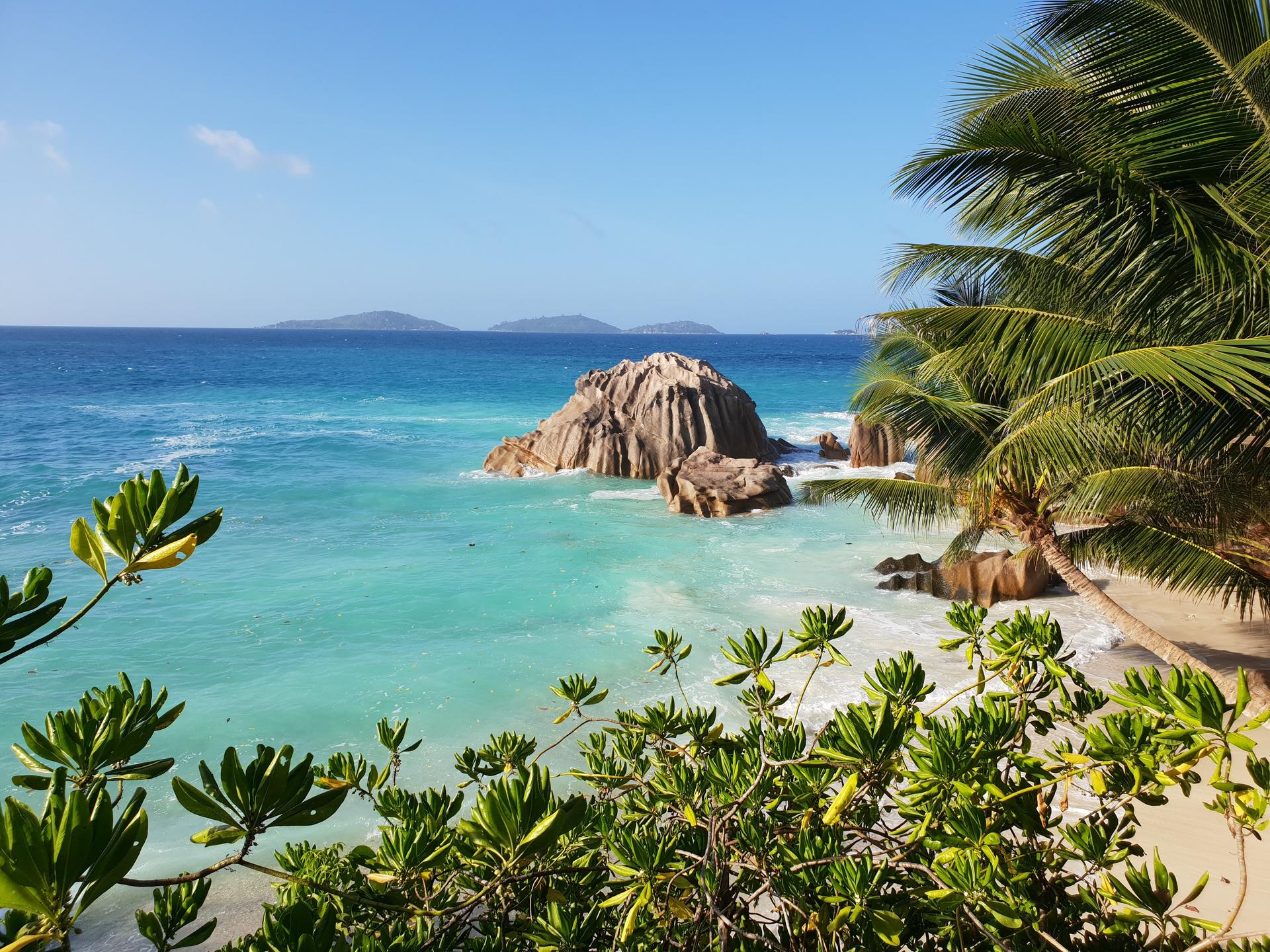Seychelles🇸🇨

Seychelles is an island nation located in the Indian Ocean off the eastern coast of Africa. It's known for its stunning beaches, clear waters, and diverse wildlife. The capital city of Victoria offers historical sites such as the Seychelles Natural History Museum and the colourful Sir Selwyn Clarke Market. Seychelles is highly recognized for being a destination that provides safety and tranquility. For outdoor enthusiasts, Morne Seychellois National Park on Mahé offers hiking trails, gorgeous views, and close-up encounters with wildlife.
⚠️Things you should avoid⚠️
- Avoid littering. Seychelles is environmentally conscious, and littering can attract hefty fines.
- Avoid unprotected sex to prevent sexually transmitted diseases.
- Refrain from taking photographs of government buildings or military installations.
- Avoid feeding or disturbing wildlife in any form.
- Avoid offending local customs and traditions.
- Avoid touching or stepping on coral reefs while snorkelling or scuba diving.
- Try to avoid isolated areas at night.
- Avoid taking fruits, seeds, or other plant materials out of Seychelles.
- Avoid walking around alone late at night in Victoria.
- Avoid leaving personal belongings unattended at the beach.
Overall
8
Crime 🔫
7
While crime rates in Seychelles are relatively low compared to global averages, petty crime, such as burglary and vehicle break-ins, do occur. Tourist areas and hotels may be targets for theft. Violent crime is relatively rare, but can occur. Victoria, the capital city, sees more crime than other areas, but it's still considered relatively safe.
Terrorism 💣
9
Seychelles has no significant history or current warning of terrorism. The government continues to secure its borders and has committed to fighting against global terrorism. It's always recommended to stay updated with World News while travelling.
War ⚔️
10
Seychelles has no active conflicts and is known for its peace and stability. There are no recent incidents related to war or political instability.
Natural Disasters 🌊
6
Seychelles lies in an area vulnerable to cyclones, but it is generally spared the brunt of severe storms. Sea level rise is a concern due to climate change. No severe natural disaster has been reported recently.
Medical Care 🏥
8
Seychelles offers good medical facilities. The primary healthcare system extends to remote areas as well. For serious medical problems, however, evacuation to a country with high-level medical facilities may be necessary.
Tap Water Quality 💧
7
The tap water in Seychelles is considered safe to drink, but some travellers choose to drink bottled water, especially those with weak immune systems.
Disease Burden 🤒
8
Common diseases in Seychelles are similar to those in most tropical locations and include gastroenteritis and dengue fever. However, the country has a well-developed public health system with a good network of clinics and hospitals.
Corruption 💸
7
Seychelles has made significant strides in fighting corruption in the past few years. However, like many countries, there are still reports of corruption, which the government continually works to reduce.
Safety for Women ♀️
8
Seychelles is generally considered to be a safe country for women, however, like anywhere, it is always recommended for women to exercise caution, especially when travelling alone.
Safety for Queer People 👬
8
Seychelles has decriminalized homosexuality and continues to improve in terms of human rights. There is growing acceptance of the LGBTQ+ community, but societal discrimination still exists.
Censorship 📺
6
The government in Seychelles has committed to freedom of speech and press, but certain laws can create concerns for self-censorship among journalists. Internet access is generally unrestricted.
Public Transportation 🚌
8
Public transportation in Seychelles is good with regular bus services around the islands. However, frequency is not high hence rental cars are recommended for complete flexibility. Driving is safe but to be done with caution due to hilly terrains.
Other useful information
🔒 How safe is it?
Seychelles overall is a safe travel destination known for its tranquility. While petty crime exists like any other places, it is relatively low and the law enforcement agencies are well-equipped to deal with them. It is always advisable to exercise common sense precautions, such as not leaving belongings unattended and not walking alone at night in isolated areas.
🏰 Embassies in this Country
Seychelles hosts several foreign embassies including those of the United Kingdom, France, and India. Most are located in Victoria, the capital city.
💉 Recommended Vaccinations
Basic vaccines like Measles, Pneumonia, and Hepatitis A & B are recommended. If you are arriving from a country with risk of Yellow Fever, you will need a proof of vaccination against it.
🐍 Dangerous Animals
Seychelles is home to many unique species. While most pose no danger, sharks can be found in the waters. However, such encounters are very rare.
🛂 Visa Requirements
Most nationalities, including US, UK, and EU citizens, do not need a pre-entry visa to enter Seychelles for tourism and can stay for up to 90 days.
💲 Currency
The currency of Seychelles is Seychellois Rupee (SCR). It can be exchanged at banks, hotels and authorized dealers. Feyk currencies especially USD and Euro are widely accepted.
💳 Credit Card Acceptance
Credit cards are widely accepted in hotels, restaurants, and larger shops, especially Visa and MasterCard.
🧑🏭 Is it possible to work and travel in this country?
Unless you have a valid work permit, you are not allowed to work in Seychelles. It is a popular destination for volunteering, particularly in conservation projects.
💵 Cost of Travel and Living
Seychelles is one of the more expensive African countries to visit, mostly due to its remote location. However, with budget options available in accommodation and dining, it's possible to save money.